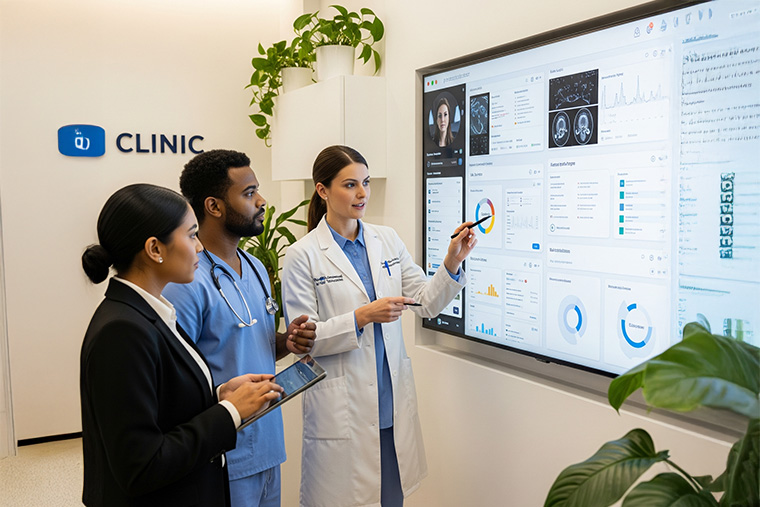Improving Healthcare through NLP Solutions
Our Natural Language Processing (NLP) to healthcare, enabling seamless data extraction, automation, and intelligent insights from unstructured clinical text. Our HIPAA-compliant solutions enhance clinical documentation, patient engagement, and decision-making, helping healthcare organizations improve efficiency and patient care.







